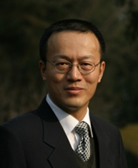Biography: Prof. Teng Long is the Vice President of Beijing Institute of Technology (BIT). He is a full professor and a doctoral supervisor of the School of Information and Electronics of BIT. His research interests include the novel radar system and signal processing.He is an Academician of the Chinese Academy of Engineering, a foreign member of the Russian Academy of Engineering, and a corresponding member of the International Academy of Astronautics. He is a fellow of the Institute of Electrical and Electronics Engineers (IEEE), a fellow of the Institution of Engineering and Technology (IET), and a fellow of the Chinese Institute of Electronics (CIE).He won the National Medal for Innovation of China, the Science and Technology Awards Prize of Ho Leung Ho Lee Foundation, Distinguished Leadership Award of IEEE Technical Committee on Cyber-Physical Systems, and Award of Top Ten Outstanding Youth of Beijing.He is the Vice Chairman of the Chinese Institute of Command and Control, the Executive Director of CIE, the Executive Director of China Instrument and Control Society, the President of Signal Processing Society of CIE, and the President of International Cooperation Committee of CIE.He has been a member of the Evaluation Committee of Academic Degrees of the State Council since 2015. He is a Yangtze River Scholar Distinguished Professor, Chief Scientist of National Basic Research Program of China, and Chief Scientist of National High Technology Research and Development Program of China. He won the Distinguished Young Scholar Fund by the National Natural Science Foundation of China.He published 3 academic books and over 130 SCI-indexed academic papers. He has been authorized more than 50 invention patents as the major inventor. He received 2 Second Prize of National Technological Invention Award (ranked first), 1 Grand Prize of Ministerial Award (ranked first), and a total of 8 other level awards of Ministerial Awards.He founded IET International Radar Conference and IEEE International Conference on Signal, Information and Data Processing. He was also invited to give an editorial in the journal of IET Radar, Sonar and Navigation in 2018, and this is the first time for Chinese scholars. He was invited to give keynote speeches in international conferences several times.
Title: Demands of communication in distributed radar
Abstract:
Distributed radars deploy multiple small aperture antennas on separated spaceborne, airborne, and ground-based platforms. Through sparse and flexible configurations, distributed radars can markedly improve the observation range, resolution, and accuracy. Therefore, they have obvious advantages in Earth and deep space observation. Nowadays, distributed radars have become one of the important directions of radar development.
As an indispensable part of distributed radar, communication networks support data transmission among each radar branch. With the development of system configuration and observation performance, distributed radars have new demands on communication. Firstly, different distributed radars have distinct spatial distances, structures, and collaborative relationships. It requires communication networks with flexible topology configurations. Then, transmission data will proportionally increase with the number of radar nodes and signal bandwidth. High-speed and high-reliability data transmission links are urgently needed. Finally, synchronization errors in distributed nodes can degrade the performance of signal-level processing. Therefore, it is necessary to build a high-precision time and frequency synchronization link.
This keynote speech focuses on demands of communication in distributed radar. Different working modes, network configurations, and processing methods of several typical distributed radars (spaceborne, airborne, etc.) will be firstly introduced. Their demands on configurations, transmission speeds, and access methods of communication networks will be deeply discussed.



